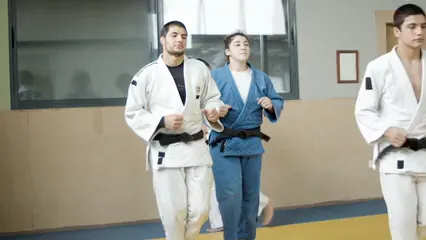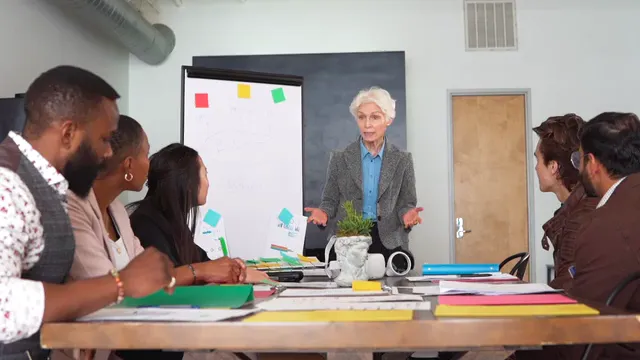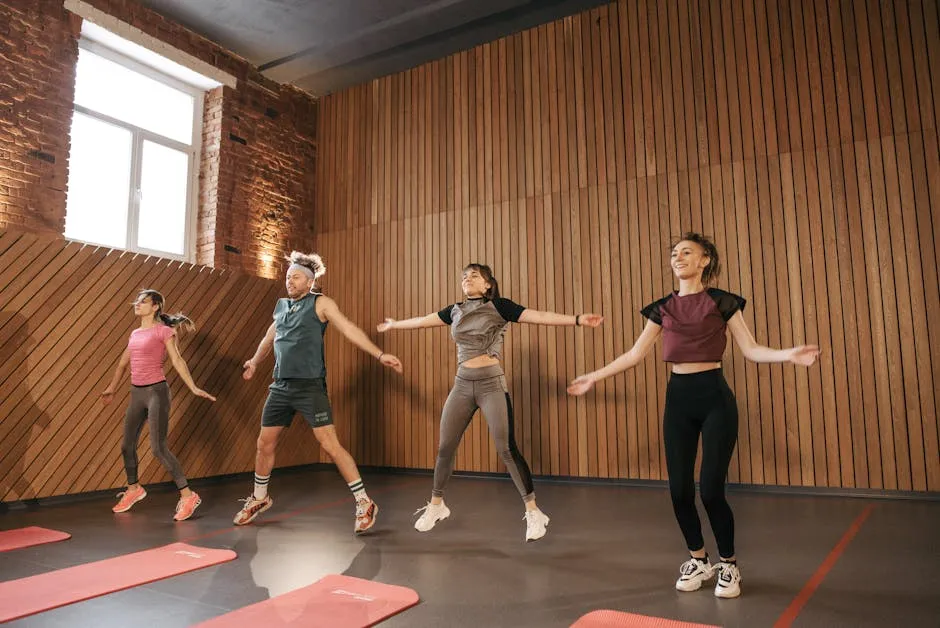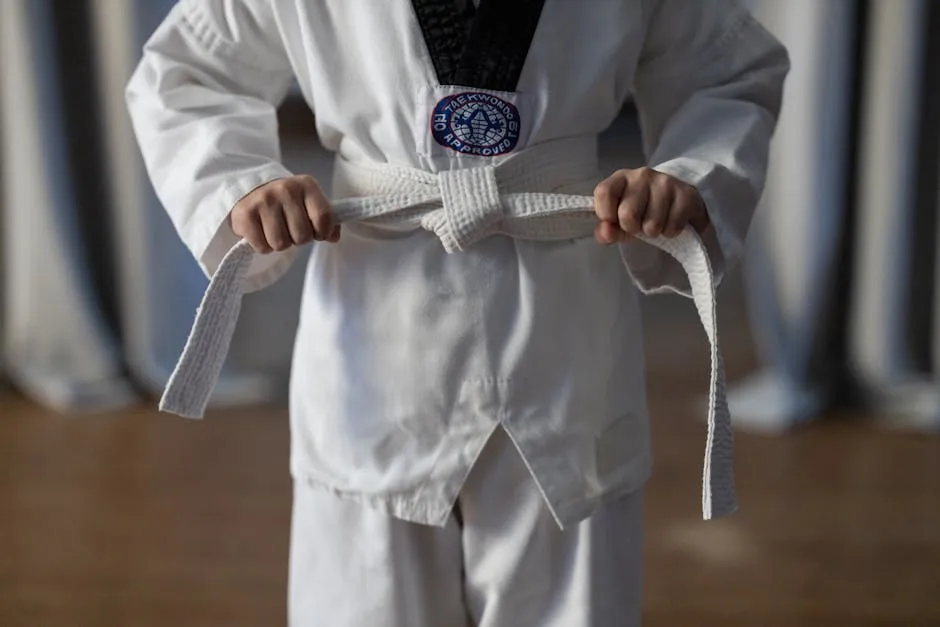
Why Is Kenjutsu Mentor Not Responding? Understanding the Silence and Finding Solutions
Introduction
Picture this: you’re standing in the dojo, shinai in hand, ready to unleash your inner samurai. Your Kenjutsu mentor has been your guiding light, helping you navigate the intricate world of swordsmanship. But then, silence. Your messages go unanswered, and you’re left wondering if your mentor is busy training for the next big tournament or if they’ve taken a vow of silence.
Mentorship in Kenjutsu is a sacred bond. It’s built on trust, guidance, and communication. Typically, you expect regular feedback, tips, and the occasional inspirational quote to keep you motivated. But when your mentor suddenly stops responding, it’s like being stuck in a kata without knowing the next move. The curiosity bubbles up, mixed with a sprinkle of frustration.
You might find yourself pondering: “Is my Kenjutsu mentor practicing their silent meditation, or is something else going on?” The truth is, there could be various reasons behind this communication breakdown. Understanding these can help ease your worries and help you grow as a student. After all, every warrior faces challenges, and sometimes, it’s about how you respond to those challenges that defines your path.

Summary of Key Points
So, why might your Kenjutsu mentor not be responding? Let’s stir up some curiosity with a sneak peek into the potential reasons.
First up, personal life circumstances. Your mentor may be juggling family issues, health concerns, or work commitments that take precedence over training. It’s vital to recognize that they are human too.
Next, there could be technical communication issues at play. Maybe their messaging app is acting up, or emails are lost in the digital void. Technology can be tricky, and it’s worth considering this possibility.
Then, there’s the issue of time constraints. Your mentor might be busier than a sensei at a tournament, leaving little room for communication. Understanding their schedule can help you find the right moments to reach out.
Lastly, the nature of mentorship itself can influence communication. Some mentors may prefer to step back and encourage independence, allowing their students to forge their own paths.
These themes are just the tip of the iceberg. Each point carries significance for your growth in Kenjutsu. Understanding why your mentor may not be responding can pave the way for a more fruitful training experience. So, let’s lace up our dojo shoes and dive deeper into each of these points!

Understanding the Silence
The Nature of Martial Arts Mentorship
In the realm of Kenjutsu, mentorship is more than just instruction. A mentor is a guide, a confidant, and sometimes, a source of inspiration. Unlike traditional teachers who primarily deliver lessons, Kenjutsu mentors engage with their students on a deeper level. They cultivate discipline, resilience, and respect—all critical components of martial arts.
Expectations run high for students. They look for guidance on technique, strategy, and even philosophy. Regular communication is vital for growth. When students reach out, they often seek affirmation or advice, eager to improve their skills.
Picture this: you send a message to your mentor, excited to share your latest breakthrough. But days go by without a response. Frustration builds, and you wonder if you’ve offended them. Understanding the dynamics of mentorship can help ease those worries. Remember, effective communication is the backbone of any student-mentor relationship, and it should be nurtured with care.
Possible Reasons for Non-Responsiveness
Personal Life Circumstances
Life happens, and sometimes, it happens hard. Your Kenjutsu mentor may be facing personal challenges. Health issues, family commitments, or demanding work schedules can take precedence over training. Imagine a mentor who is a single parent suddenly dealing with a child’s unexpected illness. Their priorities shift, and communication may dwindle as they navigate these hurdles.
Consider the case of a hypothetical mentor named Sensei Takashi. He might be your go-to for advice on sword techniques one day, but the next, he’s preoccupied with a family emergency. It’s natural for mentors to be human, facing their own battles. Recognizing their circumstances can foster empathy and patience on your part.
Speaking of battles, if you’re looking to enhance your training at home, consider investing in a Martial Arts Training Dummy. It’s a fantastic way to practice your strikes and footwork when your mentor is unavailable. Plus, it won’t complain about your technique!

Technical Communication Issues
Technology can sometimes feel like a ninja—swift and stealthy, but also prone to disappearing when you need it most. Your messages might not be reaching your mentor due to technical glitches. Perhaps their messaging app is acting up, or emails are getting lost in the digital ether. It happens!
To ensure your messages are received, consider these tips: first, try multiple platforms. If you usually text, drop an email. If you email, send a quick follow-up message on social media. Secondly, double-check that your messages are sent. Sometimes, we hit “send” and then forget—only to find out later that our message was stuck in the outbox, like a lost shinai.
Time Constraints
Busy schedules can impact anyone, mentors included. Imagine your mentor is gearing up for a competition, training multiple students, and juggling personal life. It’s a lot! Their time might be stretched thin, leaving little room for communication.
To better align your schedules, consider these strategies: ask for regular check-ins. Perhaps a bi-weekly chat can be set up, allowing both of you to plan ahead. You might also try sending brief messages that respect their time, like, “Just checking in, no rush!” This approach keeps the lines of communication open without overwhelming your mentor.
Mentorship Philosophy
Some mentors adopt a philosophy that involves stepping back. This allows their students to develop independence. They may believe that learning to navigate challenges without constant guidance fosters growth. If you feel your mentor is adopting this approach, it’s worth discussing. Open a dialogue about your needs and expectations—this could lead to a richer mentorship experience.
Understanding the nuances of mentorship can alleviate frustrations. It’s essential to remember that silence doesn’t equate to abandonment. Each mentor has their own reasons for their availability. Recognizing this can transform your perspective, paving the way for a more resilient and rewarding journey in Kenjutsu.

Strategies to Address Non-Responsiveness
Effective Communication Techniques
If your mentor isn’t responding, it’s time to take action. Start by reaching out with clear, respectful messages. Here are a few tips:
1. Be Concise: Keep your messages short.
2. Express Concerns: Let them know you value their guidance.
3. Ask Open-Ended Questions: Encourage a response.
Here’s a respectful message template you can use:
—
Subject: Quick Check-in
Hi Sensei [Name],
I hope this message finds you well! I wanted to check in and share my progress. Your feedback means a lot to me, and I’m eager to hear your thoughts when you have a moment.
Thank you!
Best,
[Your Name]
—
Building a Support System
While waiting for your mentor to respond, consider building a support system. Seek guidance from other mentors or peers. They can offer valuable insights and encouragement during periods of silence.
Engaging with the Kenjutsu community can also be beneficial. Join forums, attend local training sessions, or participate in online discussions. Connect with fellow practitioners who share similar goals. This network can be a source of motivation and knowledge.
Consider checking out local dojos or martial arts clubs. You might find experienced practitioners willing to share their expertise. Remember, the journey of a martial artist is often about collaboration and support.
By fostering connections within the Kenjutsu community, you ensure that your training continues, regardless of your mentor’s availability. This proactive approach will enhance your skills and deepen your understanding of the art.

Self-Reflection and Growth
When your Kenjutsu mentor goes silent, it’s the perfect time for self-improvement. Instead of waiting around, use this opportunity to sharpen your skills and deepen your understanding of the art. Remember, every great samurai faced challenges alone at some point.
First, practice your footwork. Set up a mirror and watch yourself as you move. Focus on your balance and precision. A strong foundation in footwork can elevate your overall technique.
Next, engage in solo kata practice. These forms help you internalize movements and cultivate muscle memory. Challenge yourself by increasing your speed or adding variations to the traditional routines.
Consider journaling your training progress. Documenting your thoughts and experiences can provide insights into areas needing improvement. It’s a great way to track your growth over time.
You can also explore online resources. Look for instructional videos or forums where experienced practitioners share tips and techniques. Engaging with the Kenjutsu community can inspire new ideas and foster a sense of connection.
Finally, don’t forget about physical conditioning. Incorporate strength training and flexibility exercises into your routine. A strong body supports a skilled warrior. Weighted jump ropes can add an excellent cardio workout to your routine, helping to keep you fit and ready for your next training session!
Use this time wisely. Embrace the silence and transform it into a stepping stone for your personal growth in Kenjutsu. Each moment spent honing your craft is a victory in itself.

Conclusion
In this exploration of why your Kenjutsu mentor might not be responding, we’ve unraveled several key points. Understanding the reasons behind a mentor’s silence is crucial for students. It encourages patience and proactive communication, which are essential in any mentorship.
First, we discussed personal life circumstances. These can significantly impact a mentor’s availability. They might be dealing with health issues or family commitments that take precedence over training. Recognizing this human aspect fosters empathy and understanding.
Next, we touched on technical communication issues. Technology can fail us, leading to missed messages or delayed responses. This highlights the importance of using multiple channels to reach out and ensuring your messages are received.
We also examined time constraints. Mentors often juggle multiple responsibilities, which can hinder their ability to respond promptly. This insight encourages students to be respectful of their mentor’s time and to plan communications accordingly.
Lastly, we delved into the philosophy of mentorship. Some mentors intentionally encourage independence by limiting communication. This approach can be frustrating, but it ultimately fosters growth and self-reliance in students.
As you navigate this journey, remember that silence doesn’t equate to abandonment. Your mentor’s absence can be an invitation for you to grow and develop your skills independently. Embrace this opportunity.
In the world of martial arts, every warrior’s path is unique. Value your journey and the lessons it brings. Mentorship is a valuable resource, but self-discovery is equally important. So, continue training, seek knowledge, and remember that every challenge is a chance to evolve into a more skilled practitioner. Each moment spent practicing is a step closer to mastering the art of Kenjutsu. Keep moving forward!

FAQs
Why might my Kenjutsu mentor not respond to my messages?
Your Kenjutsu mentor’s silence could stem from several reasons. First, personal life circumstances might be at play. They may be juggling family commitments, health issues, or work obligations, making it challenging to respond promptly. Remember, mentors are human too! Technical communication issues could also be a factor. Perhaps your messages are getting lost in the digital shuffle. Glitches in messaging apps or email problems can happen to anyone. Time constraints are another common issue. Your mentor might be busier than a sensei at a tournament, leaving little time for communication. Their schedule could be packed with training, teaching, or personal tasks. Lastly, some mentors adopt a philosophy of encouraging independence. They may intentionally limit communication to help you grow as a martial artist. This approach can feel frustrating, but it’s often meant to foster self-reliance. Recognizing these reasons can help you approach the situation with empathy and understanding.
How can I improve my communication with my mentor?
Improving communication with your mentor can enhance your relationship and training experience. Here are some practical tips to consider: 1. Be Clear and Concise: Keep your messages short and to the point. A busy mentor will appreciate quick, well-structured inquiries. 2. Respect Their Time: Understand that they may have a packed schedule. Sending messages marked ‘no rush’ can indicate you value their time. 3. Use Multiple Platforms: If one communication method isn’t working, try another. If you usually text, consider sending an email or a message through social media. 4. Set Regular Check-ins: Propose a bi-weekly or monthly check-in. This establishes expectations for both you and your mentor. 5. Be Patient: If your mentor doesn’t respond right away, give them some time. They could be dealing with personal matters or have a busy training schedule. By applying these strategies, you can foster a more effective communication channel with your mentor, making your training journey smoother.
What should I do if my mentor continues not to respond?
If your mentor remains unresponsive despite your best efforts, consider these alternative support systems and resources: 1. Seek Peer Support: Connect with fellow students or practitioners. They can provide valuable insights and encouragement when your mentor is unavailable. 2. Look for Other Mentors: Sometimes, finding additional mentors can diversify your learning. Different perspectives can enrich your training experience. 3. Engage with the Kenjutsu Community: Participate in forums or local training sessions. Engaging with the community can help you stay motivated and learn from others. 4. Utilize Online Resources: Explore online tutorials, videos, or articles about Kenjutsu. Many experts share their knowledge freely, offering you new techniques and insights. 5. Practice Independently: Use this time to work on your own skills. Focus on kata, footwork, and techniques. Self-practice can be incredibly rewarding and help you grow. By expanding your support network and utilizing available resources, you can continue your Kenjutsu journey even when your mentor is not responsive.
Is it normal for mentors to go silent for periods?
Yes, it’s entirely normal for mentors to experience periods of silence. Mentorship dynamics can vary greatly, and several factors contribute to this phenomenon. First, mentors often have busy lives outside of training. Personal commitments, work obligations, and family responsibilities can sometimes overshadow direct communication. It’s essential to remember that they may be dealing with their own challenges. Additionally, the nature of mentorship itself can lead to temporary lapses in communication. Some mentors adopt a hands-off approach, believing that students should learn to navigate challenges independently. This philosophy encourages growth and self-reliance, even if it feels frustrating in the moment. Lastly, mentors may be evaluating their students’ progress, allowing time for reflection. This can create a natural pause in communication. While it may feel concerning, this period can ultimately lead to a more enriching mentorship experience. Understanding these dynamics can help you appreciate the ebb and flow of mentorship, allowing you to remain patient and proactive in your training.
While you’re on the quest for knowledge, why not also consider some physical tools to assist your training? A Karate Gi can be a comfortable and practical choice for your practice sessions. And don’t forget to earn that next colored belt with a Martial Arts Belt Display Rack to showcase your achievements!
Please let us know what you think about our content by leaving a comment down below!
Thank you for reading till here 🙂
If you’re curious about the dynamics of mentorship in Kenjutsu, check out this insightful discussion on why your Kenjutsu mentor might not be responding.
All images from Pexels




